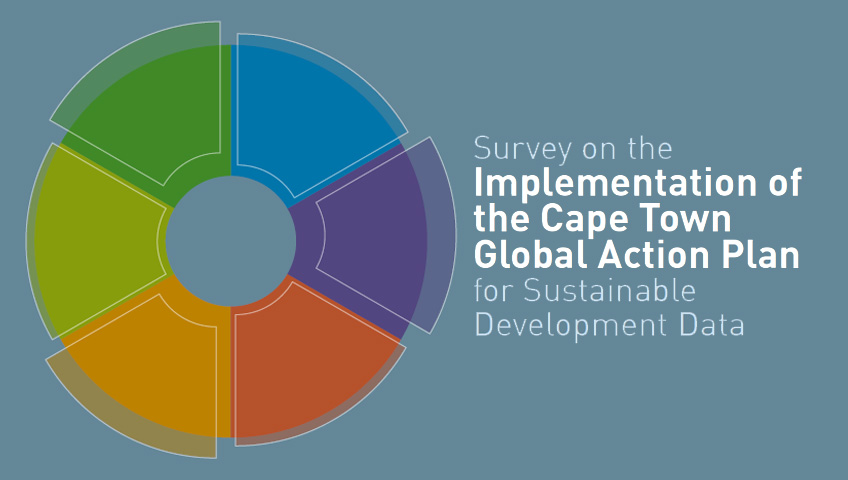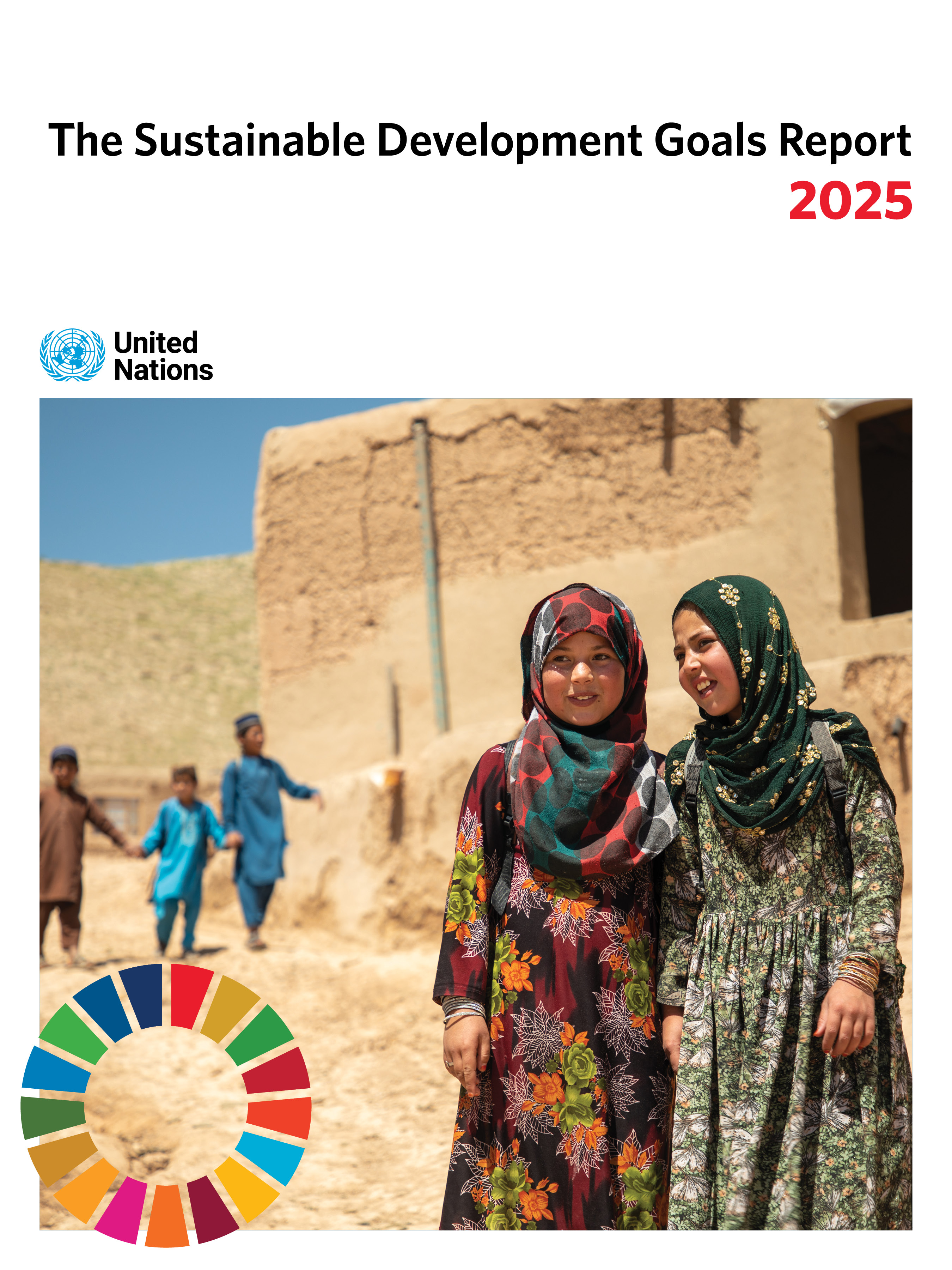HLG-PCCB
Bern Data Compact for the Decade of Action on the Sustainable Development Goals
Bern Data Compact for the Decade of Action on the Sustainable Development Goals (PDF)
Announced during the UN World Data Forum 2021 in Bern at the closing session on Wednesday, 6 October 2021. Prepared by the HLG-PCCB following an open consultation planned for between 9th August and 13th September 2021
I. Preamble
- We, the participants gathered here in Bern, Switzerland, for the United Nations World Data Forum 2021 (the Forum), representing different data and statistical communities, government institutions, policy makers, planners and decisions takers, academia and professional associations, donor and philanthropic community, the private sector, the media and civil society, acknowledge the progress made in the last five years to establish the Cape Town Global Action Plan for Sustainable Development Data (the CTGAP), launched at the first Forum in Cape Town and the Dubai declaration, launched at the second Forum in Dubai, on how to finance and implement the CTGAP.
- Appreciate that achieving the 2030 Agenda for Sustainable Development (2030 Agenda) and sustainable regional, national and local development require fit-for-purpose data with each data ecosystem stakeholder playing their part, whilst working in harmony towards a common goal: "A World with Data We Trust".
- Acknowledge further that data and statistics need to be fully utilised in global, regional, national and local value chains to inform and deliver in a sustainable way on the services and resources people need.
- Recognise that quality, timely, relevant, open and disaggregated data are indispensable for effective evidence-based decision making to lead us towards a sustainable path for development and an inclusive society.
- Increasingly aware that data are critical in response to natural and man-made disasters, in all forms and regardless of their global or local reach, both to mitigate their effects and plan the recovery to build back better.
- Policy makers, planners and decisions takers in Government invest in the national data ecosystem to enable high-quality, timely, open, reliable and disaggregated data for evidence-based decision making and for every individual to be represented;
- National Statistical Systems produce high-quality, timely, open, reliable and disaggregate data, including by integrating a variety of innovative data sources, in line with the UN Fundamental Principles of Official Statistics;
- All data producers safeguard data privacy and confidentiality, and balance this with data use and sharing;
- Civil society and individuals bring more data to the attention of the public hereby holding authorities to account and at the same time improving data quality through this exposure;
- The private sector shares more data and brings it into the public space for it to be accessible and used in a responsible manner, in full respect of privacy and confidentiality;
- The geospatial community works with other data producers to maximize the value of geocoded data and information;
- Academic and professional associations apply their independent advice and expertise to further illuminate available data, provide further insights and feedback;
- The media impartially reports on publicly available data and promote better understanding across the entire public and combat disinformation;
- The general public cooperates with data collection exercises being conducted by National Statistical Systems by providing accurate and useable information knowing their data are protected and free from misuse;
- The donor and philanthropic community supports how people, nations and localities are informed by data with the provision of technical, financial, technological and capacity development assistance aligned to national and local priorities in coordination with other development partners, and to ensure full access is given to the national statistical system of any data collected under any development assistance programme.
- The United Nations system and other international, regional and sub-regional organisations encourages common data practices through the development and promotion of international standards, provide support aligned to national and local priorities, encourage and facilitate cooperation and capacity development across the data ecosystem and promote data as a public good.
- We all work together to provide a rapid response in times of uncertainty when timely data are needed the most.
- For accelerated action on the implementation of the Cape Town Global Action Plan, our shared vision is to do the following;
- In pursuing these common actions, we stress the need for further commitments as follows;
- We strive to implement the Cape Town Global Action Plan, the Dubai Declaration and the Bern Data Compact for the Decade of Action on the SDGs, and to continue to make progress on actions and commitments, which require us to recognise each part we play in the data ecosystem is unique and irreplaceable but that together we are greater than the sum of our parts.
- We promise to advance the Cape Town Global Action Plan and Bern Data Compact for the Decade of Action on the SDGs through good governance and a mutual understanding of the benefits and challenges of our shared data ecosystem, and will proceed with a common voice to advocate for data and its place in public affairs; locally, nationally, sub-regionally, regionally and globally.
- We commit to review progress on the implementation of the Bern Data Compact at the upcoming sessions of the United Nations Statistical Commission (UNSC), the United Nations Committee of Experts on Global Geospatial Information Management (UN-GGIM), the UN Global Compact Government Group, and other relevant bodies.
- We will meet at future United Nations World Data Forums planned in early 2023 and late 2024 to renew our commitment to an open, innovative and practical partnership.
We appeal to the international community and national governments for all communities to work together in the data ecosystem to ensure:
II. Call for action
(TA1) Develop data capacity, where we strengthen national institutional capacity, continue to modernise national data systems to generate public data that are fit for purpose, open, interoperable and nationally coordinated, and empower policy-makers, planners and decision-takers to understand these data and use them effectively;
(TA2) Establish data partnerships, where we continue to engage in public-public and public-private cooperation for the use of administrative records and new and innovative data sources by removing barriers to these sources, while ensuring full respect for privacy and confidentiality;
(TA3) Cultivate collective efforts on data to leave no one behind, where we continue to develop disaggregation in data to mainstream gender equality, integrate geospatial and statistical information, and define standards and tools to disaggregate data by income, sex, age, race, ethnicity, migratory status, disability and geographic location, and other characteristics;
(TA4) Understand the world with data, where we continue to promote data literacy and empower the general public to use data effectively and assist them to identify misinformation and abuse;
(TA5) Build trust in data, where we protect the privacy and confidentiality of individual and business data while maintaining transparency and accessibility of data that is of public interest through law, regulation and common practices;
(TA6) Increase investments in data to address the huge data gap in informing the implementation of the 2030 Agenda for sustainable development and measuring its progress, develop and promote the use of all data sources in accessible formats, including administrative-based data through the use of modern technology, to close the existing world digital divide.
III. Call for commitments [road to the fourth UNWDF]
(TA1) To develop data capacity, we need more effective investment from Governments, the private sector and civil society in institutional strengthening and data systems, supported where necessary by the donor and philanthropic community;
(TA2) To establish data partnerships, we need national statistical systems working together with the entire data ecosystem to work as one community, and foster synergies and innovative practices with new data sources;
(TA3) To produce data to leave no one behind, we need national statistical systems to collaborate with the entire data ecosystem to work on easily used and replicated standards; innovative tools and citizen-driven data along with official data to fill data gaps on the status and needs of people by income, sex, age, race, ethnicity, migratory status, disability and geographic location, and other characteristics;
(TA4) To understand the world with data, we need Governments, the private sector and the media to present data in a timely, open and impartial manner where any data with bias is clearly reported;
(TA5) To build trust in data, we need the entire data ecosystem to establish good governance systems and practices to safeguard privacy and confidentiality rights of individuals and businesses but also maintain transparency and accessibility to data of public interest.
IV. Conclusion
QUICK LINKS
- 2030 Agenda for Sustainable Development
- SDGs Database
- 2025 Comprehensive Review Process
- Survey on the Implementation of the Cape Town Global Action Plan for Sustainable Development
Data

- SG's progress report 2025
- Statistical Annex 2025
- SDGs report 2025

- Gender Snapshot 2024
- UN Data Commons for the SDGs
-

- Medellin Framework for action on data for sustainable development
- Hangzhou Declaration
- Bern Data Compact
- Cape Town Global Action Plan for Sustainable Development Data
- Dubai Declaration
- Global data community's response to Covid-19
- Statistical Commission